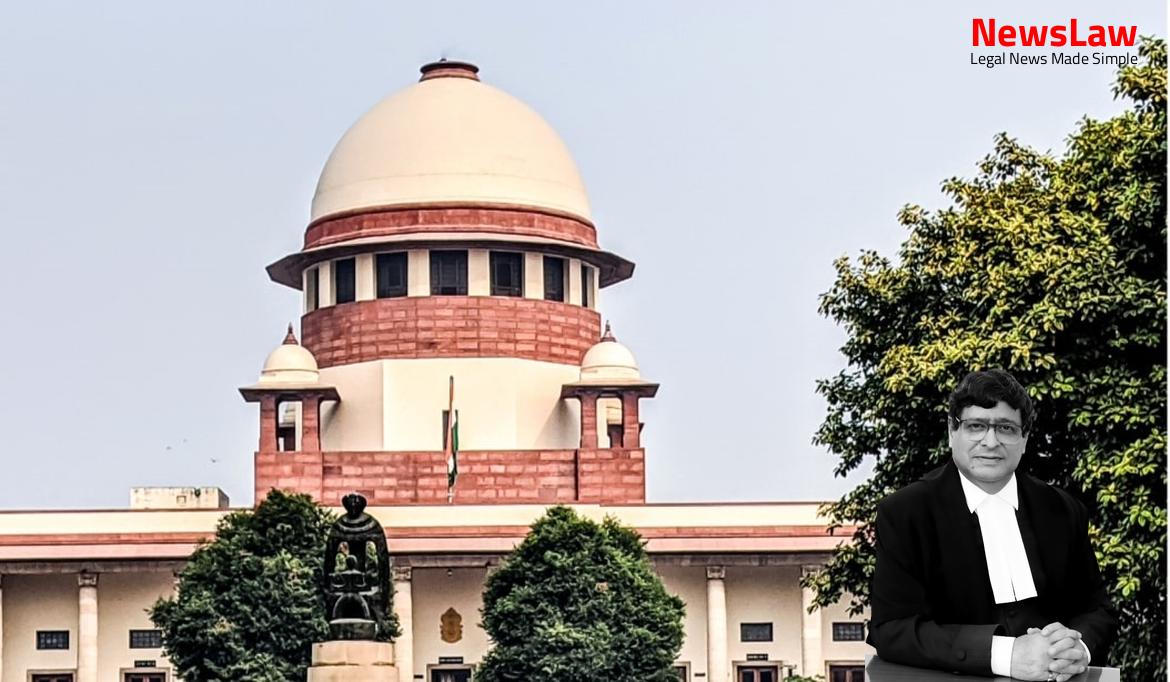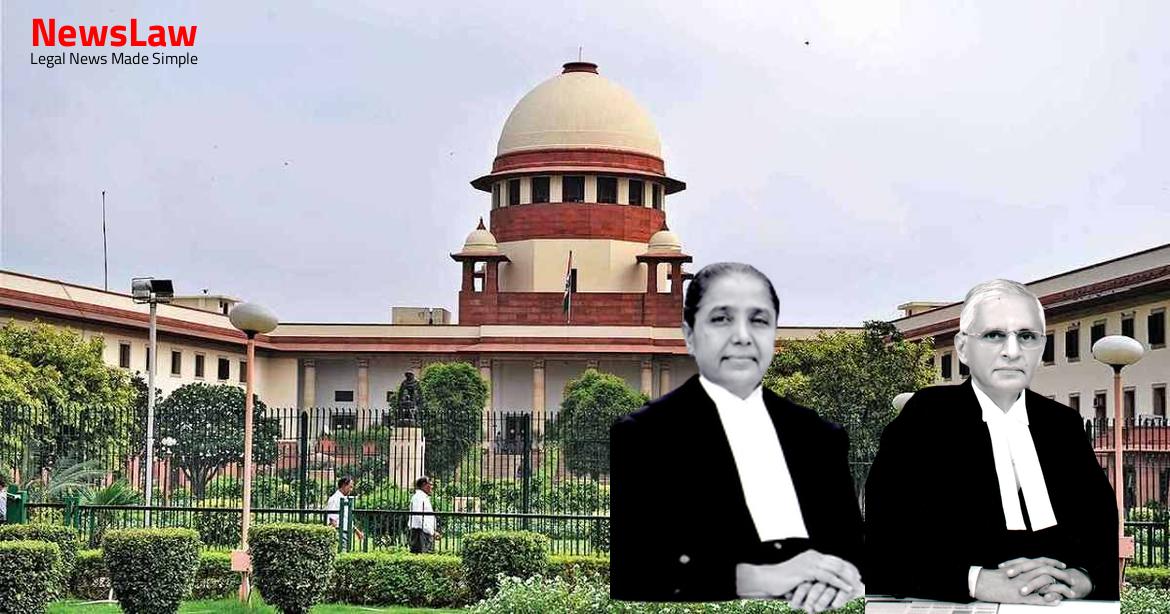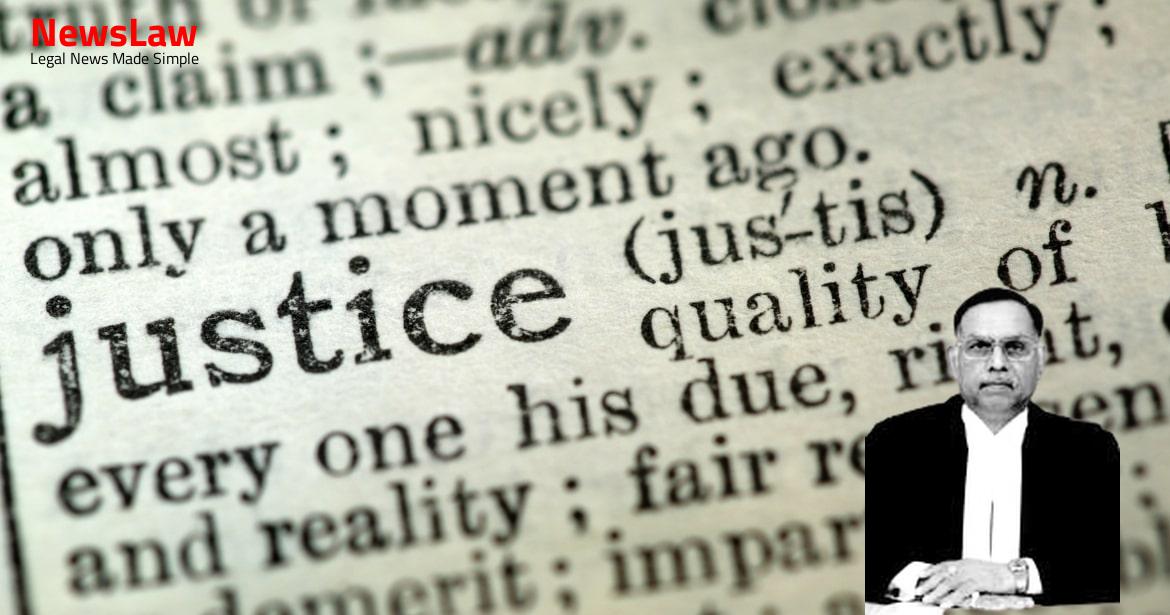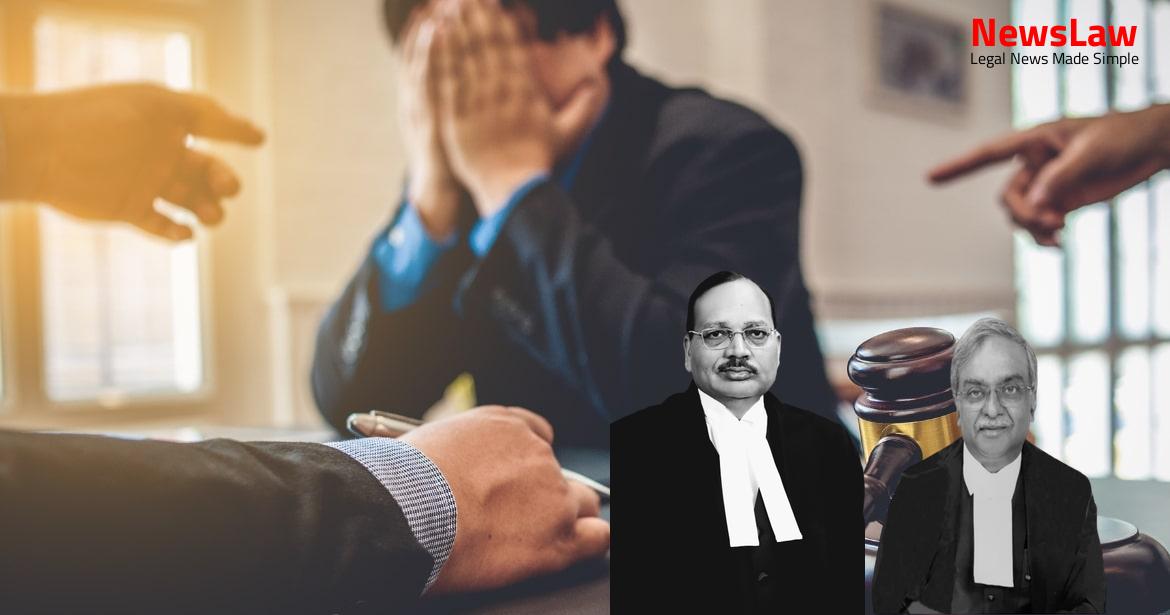In a significant legal ruling, the Supreme Court of India dismissed the appeal in the case of State of Punjab v. [Respondent Name]. The Court upheld the decision of the High Court, highlighting the importance of obtaining prior sanction in corruption cases. The judgment reinforces the legal principle that no court can take cognizance of specified offenses without the necessary sanction. This case serves as a reminder of the stringent requirements in prosecuting public servants for corruption allegations.
Facts
- Accused demanded bribe from complainant for admitting his brother in the hospital
- Accused received bribe through another co-accused
- Complainant contacted Vigilance Bureau instead of giving bribe
- Vigilance officials laid a trap and caught the culprits
- State of Punjab appealed against High Court’s decision setting aside Trial Court’s order
- FIR lodged against Accused and another co-accused
- Other accused was caught red-handed receiving money
- Chargesheet filed only against the other accused, not against the Accused
- High Court set aside Trial Court’s order as sanction under P.C Act was not taken
- Public Prosecutor requested to summon Accused under Section 319 of CrPC
- Application under Section 319 CrPC allowed, and Accused was summoned to face trial
Also Read: Judgment in the Case of Nationality Status: Appellant vs. Tribunal
Analysis
- Section 19 of the P.C Act requires previous sanction of the State Government, Central Government or competent authority for offenses under Sections 7, 11, 13, and 15.
- Section 19 overrides general provisions of Section 190 or 319 of the CrPC.
- Courts cannot take cognizance against public servants for specified offenses without following the requirements of Section 19 of the P.C Act even under Section 319 of the CrPC.
- Taking cognizance under Section 319 of the CrPC does not negate the requirement of sanction under Section 197 of the CrPC or under the special enactment applicable to the public servant.
- The Respondent in this case is considered a ‘Public Servant’ under Section 2(c) of the P.C Act.
- 1.1
- 1.2
- 1.3
- Under Section 197 of the CrPC and/or sanction mandated under a special statute are necessary prerequisites before a court can take cognizance of an offence.
- The procedure for obtaining sanction is governed by the provisions of the Code or as mandated under the special enactment.
- The words in Section 197 of the CrPC and Section 19 of the Prevention of Corruption Act clearly state that no court can take cognizance without prior sanction.
- A Special Judge trying an offence under the Prevention of Corruption Act cannot summon and proceed against a person under Section 319 of the CrPC without the necessary sanction for prosecution.
- The provision in Section 19(1) of the Prevention of Corruption Act is mandatory in nature.
- The judgments in Surinderjit Singh Mand v. State of Punjab and Paul Varghese v. State of Kerala emphasize the mandatory nature of prior sanction before taking cognizance of an offence.
- The Trial Court should have insisted on prior sanction from the appropriate Government before proceeding with the application under Section 319 of CrPC.
- Prosecution should have obtained sanction under Section 19 of the P.C Act before moving an application under Section 319 of CrPC.
- The absence of sanction renders the entire procedure flawed.
Also Read: The Importance of Test Identification Parades in Strengthening Prosecution’s Case
Decision
- The decision of the High Court is fully supported and agreed upon by us.
- We will not intervene with the order made by the High Court.
- Therefore, the appeal is dismissed.
- Any pending applications are also disposed of.
Case Title: THE STATE OF PUNJAB Vs. PARTAP SINGH VERKA (2024 INSC 483)
Case Number: Crl.A. No.-001943-001943 – 2024



